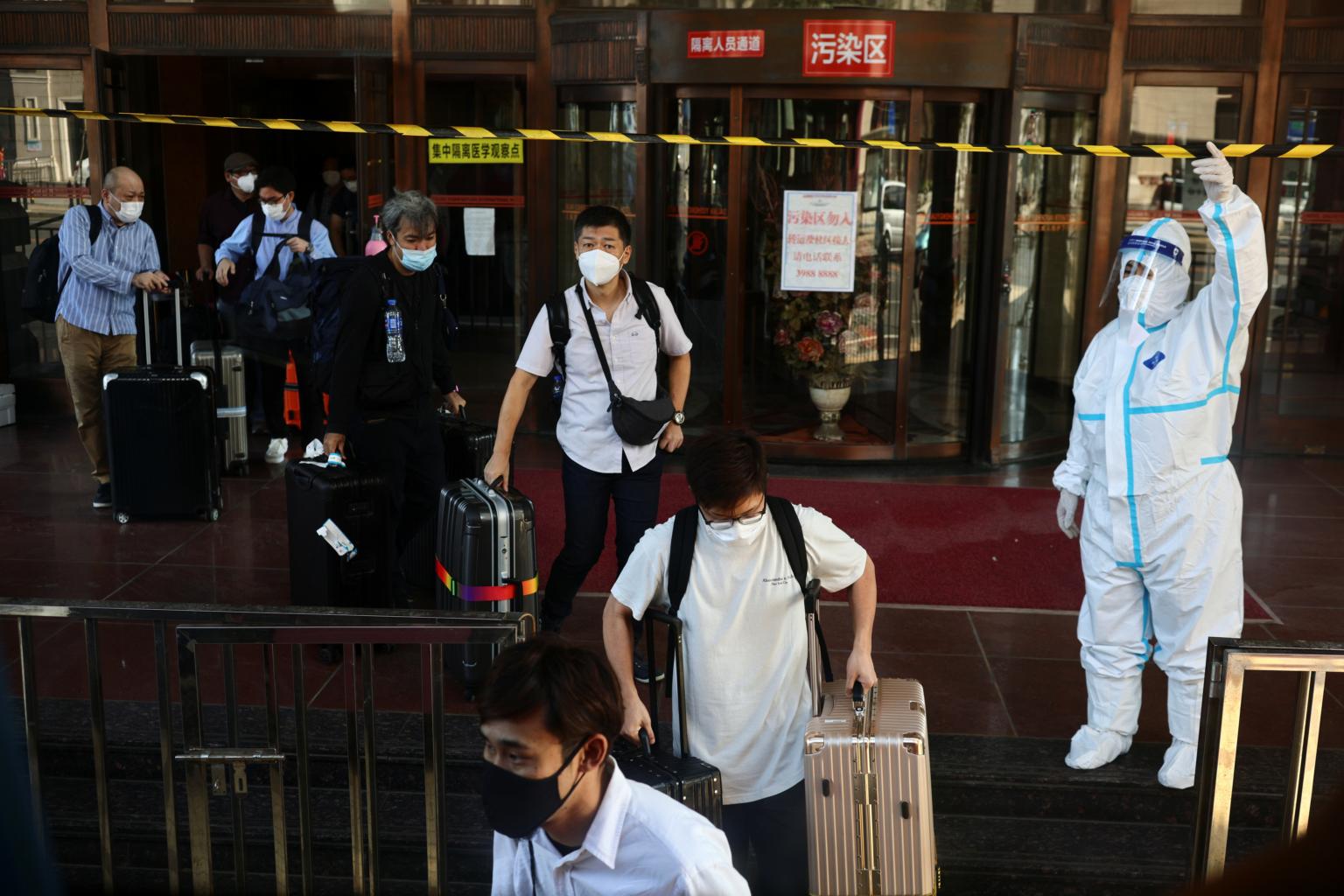China blames cold chain foods for coronavirus flare-up in Dalian
Sign up now: Get insights on Asia's fast-moving developments

Travellers leaving a hotel after completing their mandatory isolation in Dalian on Sept 29, 2021.
PHOTO: REUTERS
Follow topic:
BEIJING (BLOOMBERG, REUTERS) - China has linked the Covid-19 outbreak in Dalian, a major port city that has become the country's latest hot spot, to cold chain foods and the authorities are stepping up scrutiny of imported products.
The north-eastern city is battling the biggest flare-up in the country's current virus wave, placing tens of thousands of university students under lockdown.
The first identified case was linked to a cold storage facility and several other infections were reported among employees in the cold chain industry, local media said, adding that this is the third cold chain-related outbreak in the city.
Dalian is an important cold chain storage and transport base, handling about 70 per cent of China's total imported cold chain products.
Since Dalian's first local symptomatic patients from the latest outbreak was reported on Nov 4, the city of 7.5 million people has detected an average of about 24 new local cases a day, more than any other Chinese city, according to Reuters calculation.
Cities across the country have stepped up investigation of cold chain foods from Dalian in recent days.
Shopping centres and food companies were asked to suspend sales and conduct nucleic acid tests on these products immediately, Global Times said.
The moves come as a total of 1,308 domestically transmitted infections with confirmed symptoms were reported in the mainland between Oct 17 and Nov 14, surpassing the 1,280 local cases from a summer Delta variant outbreak, Reuters calculations based on official data showed.
This marks China's most widespread Delta outbreak, which has affected 21 provinces, regions and municipalities.
It is smaller than many outbreaks in other countries, but the authorities in China are anxious to block the transmission under the government's zero-tolerance guidance.
A dozen province-level regions contained their flare-ups within weeks, thanks to quick implementation of a complex set of curbs, including rigorous contact tracing, multiple rounds of testing of people in at-risk areas, the closure of entertainment and cultural venues, and restrictions on tourism and public transport.
China claims that the virus can persist in conditions found in cold chain food and packaging, and the authorities have been testing imported meat and seafood for traces of the virus.
International health authorities have downplayed the likelihood of such transmission, with the World Health Organisation and the United States Centres for Disease Control and Prevention saying the chance of getting Covid-19 from frozen foods is very low.
"There is still controversy about the scientific merits of the coronavirus being transmitted in cold chain products, but from a practical perspective, it doesn't matter," said Mr Darin Friedrichs, senior Asian commodity analyst at StoneX in Shanghai.
"Chinese officials and scientists believe it is possible and poses a real threat, and they are going to take action."
The cold chain scrutiny in Dalian could hit European and US seafood markets ahead of the holiday season, given that China is a major processing and re-export hub, Mr Friedrichs said.
It could also have logistics implications outside of cold chain, spurring issues at ports that handle bulk cargo and further disrupting global freight markets, he added.
As at Nov 14, mainland China had reported 98,315 confirmed Covid-19 cases with symptoms, including domestically transmitted infections and those from overseas. There had been 4,636 deaths.

